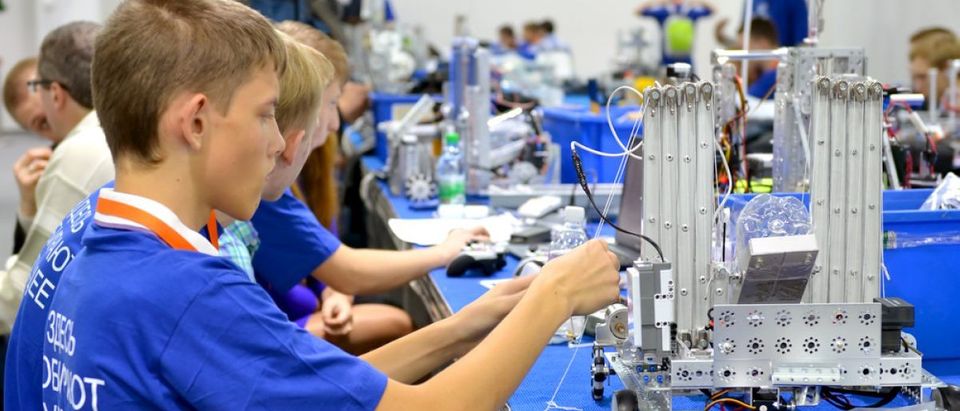Versatile robots now allow chronically ill children across the country to attend school without physically being present, thanks to a two-way live streaming system.
A group of researchers at the University of California, Irvine explored the effect telepresence robots have in classrooms. They concluded in their study that while the sample size is relatively small, “children with chronic illness and their classmates are strongly affected by physical segregation and social isolation and, until recently, there has not been a way to provide them with inclusive academic social experiences.”
Most children are not afforded this opportunity and have to wait months (even years) to return to school because of debilitating symptoms and treatments. Being included in classroom discussions and even extracurricular activities is a huge morale boost that can strengthen mental health, and subsequently physical health.
One student received a robot, and “his interest and energy increased and he attended a full day of school (six hours) the first day he used the robot,” according to the study’s personal accounts.
“And once he got the robot, I mean, I never in a million years expected him to be able to go to school all day … I just did not expect it,” the student’s mother described in the report.
She continued:
There were a lot of things that I didn’t think he could, you know, with the progression of the heart condition, we kind of thought that he was just able–his ability to do things was lessening, I guess. There were a lot of things I didn’t think he could do and I was attributing it physically. I didn’t think he could do what he can now as far as stamina to attend all day. Which I think was maybe a little more of depression
The technology is not extremely advanced, and ZDNet aptly described it Monday as more comparable to a tablet mounted on a Segway.
The technology still has some kinks to work out. One student who experimented with the robot did not complete the full testing because she felt the other students did not treat her and the robot as a “normal” student. She felt the technology created unnecessary attention and made her stand out.
“Even for Eileen, who decided to return her robot, she felt that using the robot to ‘hang out’ with friends, ‘was the fun part,'” the report reads. “Social isolation can have negative consequences for students and studies have shown that children with chronic illness who are restricted in their social activities should receive extra attention because they are especially vulnerable for problems in their social development.”
Send tips to eric@dailycallernewsfoundation.org.
All content created by the Daily Caller News Foundation, an independent and nonpartisan newswire service, is available without charge to any legitimate news publisher that can provide a large audience. All republished articles must include our logo, our reporter’s byline and their DCNF affiliation. For any questions about our guidelines or partnering with us, please contact licensing@dailycallernewsfoundation.org.


